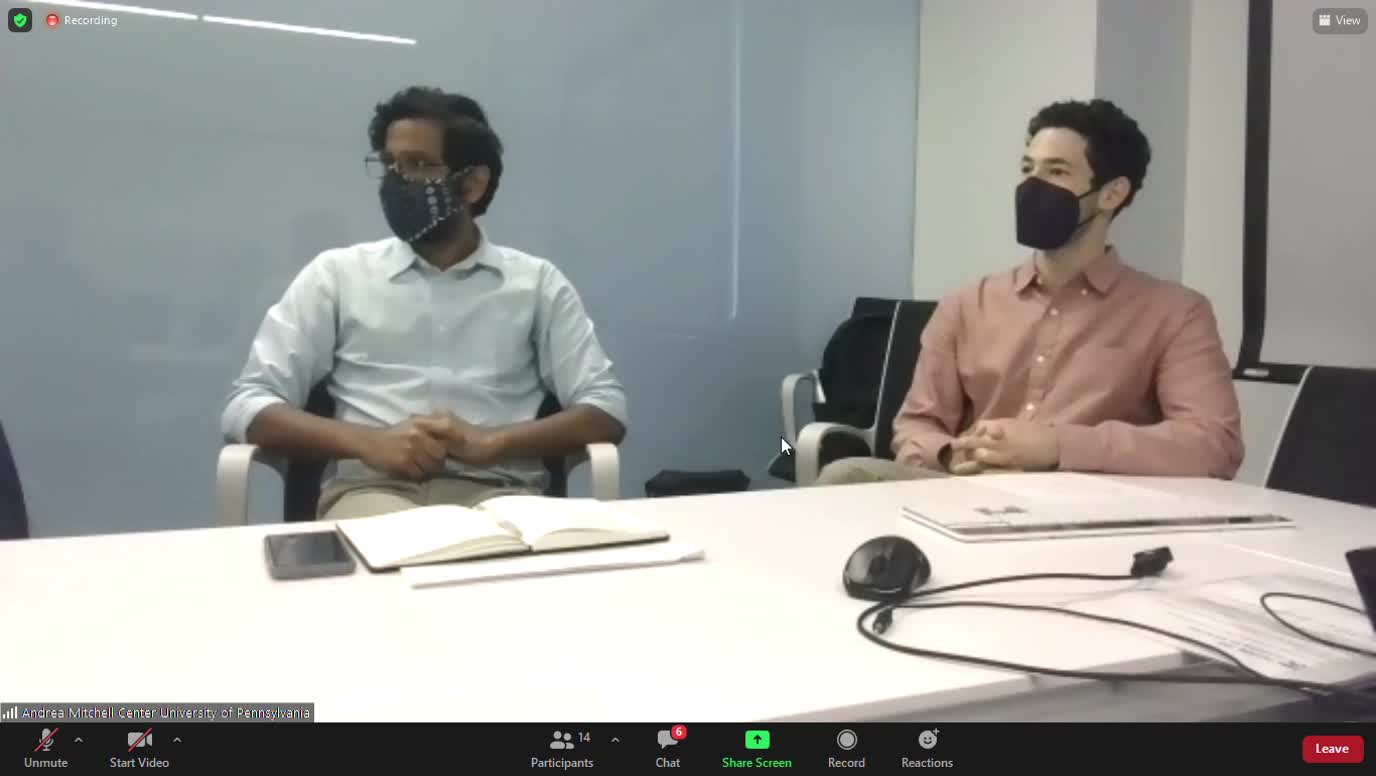Premium Only Content

Grad Workshop - Dynamics of Elite Self-Preservation
Join the Mitchell Center's Graduate Workshop for two papers, on "Trust Fund Families" and "Colonial Genealogies of Consociation."
TRUST FUND FAMILIES: GOVERNMENT POLICY AND ELITE SOCIAL REPRODUCTION / Doron Shiffer-Sebba (Penn Sociology)
BEYOND ALLOCATING MATERIAL RESOURCES UNEQUALLY BY SOCIAL CLASS, the state also reproduces class structures by funneling families with similar class backgrounds into similar experiences with state institutions (e.g., welfare programs, government bureaucracies, the criminal justice system). Scholars have long demonstrated how the state performs this role in the social reproduction of middle class and poor families. But its role reproducing elite status through contact with state institutions has scarcely been examined. DORON SHIFFER-SEBBA uses six months of ethnographic observations at an office that manages the financial affairs of top 0.1% wealthy elites to understand how the state shapes the lives of elites in the domain of financial management. He finds that a central way the state influences their experiences is by incentivizing them to manufacture a wide range of legal entities such as trusts, corporations, and foundations, to pursue goals like tax minimization. These entities, in turn, bureaucratize relationships between family members and create new forms of privilege within elite families, including what I call “financial multi-personhood”. Far from being absent in the lives of elites, the state shapes both how elites reproduce their class vis-à-vis other social classes, and how privilege is distributed internally within elite families.
COLONIAL GENEALOGIES OF CONSOCIATION: LEADERSHIP, PLURALISM, AND THE PRICE OF PEACE IN CONTEMPORARY DEMOCRATIC THEORY / Joy Wang (Yale Political Science)
IN THE DECADES OF FORMAL DECOLONIZATION FOLLOWING the Second World War, anticolonial political thinkers sought to realize democratic self-determination through proposals for federated representation, universal suffrage and directed association. JOY WANG chronicles how political scientists went in a different direction, as they reconfigured accounts of social pluralism that had once been deployed to defer demands for popular sovereignty into institutional proposals for the preservation of social peace after empire. Democratic theorists such as David Apter and Arend Lijphart mined interwar studies of colonial administration to advance proposals for stability maintenance through elite cooperation and power-sharing, in what has become formalized as “consociational” democracy and its federal and confederal variants. Hence where democratic theorists have criticized consociational democracy for its tendency to reify social difference, Wang argues that reconstruction of a specifically late-colonial genealogy for democratic theory should instead alert us to its reliance upon elite bargaining and leadership for the curtailing of popular demands in the service of continued social peace.
-
 0:40
0:40
WFTX
4 years agoPre-Bid Housing Workshop
12 -
 6:08
6:08
Blackstone Griddles
12 hours agoAlmost Famous French Toast on the Blackstone Camping Griddle
4.34K -
 LIVE
LIVE
BEK TV
22 hours agoTrent Loos in the Morning - 10/23/2025
149 watching -
 LIVE
LIVE
The Bubba Army
21 hours agoImmigrant Trucker KILLS Again! - Bubba the Love Sponge® Show | 10/23/25
2,336 watching -
 LIVE
LIVE
Side Scrollers Podcast
3 days ago🔴FIRST EVER RUMBLE SUB-A-THON🔴DAY 3🔴WAKE YOUR ASS UP!
1,150 watching -
 19:16
19:16
Jasmin Laine
16 hours agoCBC Gets FACT-CHECKED By Guest—Carney BEGS Poilievre For Help
17.1K14 -
 8:50
8:50
The Shannon Joy Show
14 hours agoBREAKTHROUGH Cancer Treatments With Dr. Makis
6.95K2 -
 9:10
9:10
Faith Frontline
13 hours agoMatthew McConaughey Just Said What No Celebrity Dares to About Jesus
10.2K2 -
 27:03
27:03
Take FiVe - His Glory
1 day agoEp 2112: Sam Anthony: How Citizen Journalism is Replacing Legacy Media | Take Five
14K2 -
 10:01
10:01
Breaking Points
19 hours agoKJP GASLIGHTS On Biden's Age In BONKERS Book Tour
10.8K1